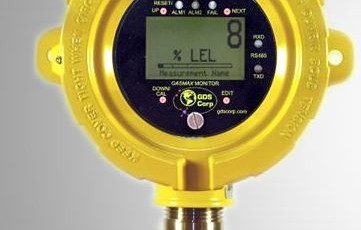In today’s modern industrial environment, technology has advanced to the point where workers are safer than ever before while performing their daily tasks. Whether it’s installing multi-million dollar equipment or making needed repairs while aboard an offshore drilling platform, there’s no doubt employees can feel secure in knowing their safety is a top priority. However, even with the best of technology, it can still sometimes be difficult to monitor for certain dangerous substances. One of these is benzene, which due to it being colorless and odorless, makes it very difficult to be detected at dangerous levels. Because of this, new types of industrial flame and gas systems are constantly being developed in an effort to detect benzene levels before they present a danger of fire or explosion. To understand how today’s methods of detecting benzene can benefit your company, let’s examine some of the most effective industrial flame monitoring equipment.
Photoionization Detectors
Better known as PIDs, these flame sensors are highly specialized and use high-energy photons to break down ions into charged particles. Afterwards, compounds can then conduct electrical currents to measure how many parts per million, or PPM, are present in the air. Very precise and efficient, these detectors are becoming widely used within the oil and gas industry, wastewater treatment plants, and chemical processing facilities.
Multi-Stage Detection Systems
Because the risks associated with benzene are so high, most facilities use multi-stage detection systems to help alert workers to dangerous situations. When these systems are in place, industrial flame detectors are able to measure the concentration of certain aromatic compounds in the air, but are then able to break down the measurements to determine whatever benzene levels may be present. Also viewed as being extremely accurate and reliable, these systems allow for very precise readings in the harshest of work environments.
Portable Benzene Detection Monitors
Since there are many instances where benzene levels can become very high in confined spaces, more and more companies are now providing their maintenance personnel and other workers with portable benzene detection monitors. Widely used in refineries, manufacturing facilities, and offshore oil rigs and platforms, these industrial fire detectors are considered essential equipment for those working in confined spaces and in isolated areas where help may not be immediately available in the event benzene levels reach dangerous levels.
Fixed Benzene Detector Systems
In refineries, pipelines, or other industrial facilities that may be large in scale, installing fixed benzene detector systems may be the most effective way to detect dangerous levels of benzene. By strategically placing these units in various areas within a facility, benzene levels are able to be monitored 24/7.
Speak with GDS Experts
Since technology continues to evolve when it comes to benzene detection methods, it’s important to work with experts who have the knowledge and experience needed to recommend the best system for your facility. To accomplish this, contact an Applications Engineer at Global Detection Systems and let them provide answers to your most complex questions regarding benzene detection methods.

